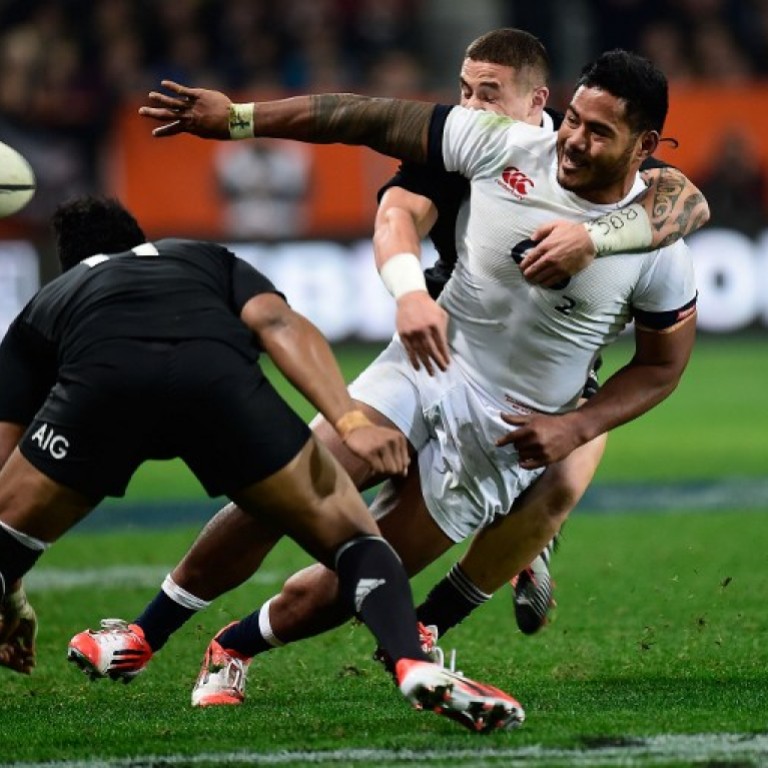
Eddie Jones declares his England intentions
Eddie Jones once said his idea of retirement was watching cricket in the Caribbean so it was no surprise when the Australian used the summer sport as a reference point when explaining why his first England side might be shorn of debutants come next month’s Six Nations opener away to Scotland.
Eddie Jones once said his idea of retirement was watching cricket in the Caribbean so it was no surprise when the Australian used the summer sport as a reference point when explaining why his first England side might be shorn of debutants come next month’s Six Nations opener away to Scotland.
“I always think about when Australia played test cricket against the West Indies when they had those four pace bowlers and were seriously good,” said Jones, who included seven uncapped players in his first England squad announced this week.
“You wouldn’t want to put a new batsman against those four quicks on a fast pitch like Perth. Murrayfield will be a tough game.”

Jones is an established international coach – he was in charge of the Australia side beaten by England in the 2003 World Cup final and guided Japan to a shock win over South Africa at last year’s edition.
By contrast, the England role was Lancaster’s first major appointment. And while he got the job after a World Cup in which England lost in the quarter-finals, his team could not even reach the knockout phase.
England beat Scotland in 2012 but the Scots now look to be a much better team – only a late penalty call denying them a World Cup quarter-final win over eventual runners-up Australia.

But Steve Borthwick, Jones' assistant coach, having played under him at Saracens and then been a member of his backroom staff in Japan, said the team could expect “absolute clarity” from their new boss.
With Robshaw, still in the England squad but starring as a blindside flanker for Harlequins this season, the contenders to fill his England number seven shirt include James Haskell, Matt Kvesic and Jack Clifford.
Asked what he wanted from his openside, Jones said: “A seven’s primary job is to ensure that on your ball you get quick ball on that first ruck.
“Then the really good sevens like [David] Pocock, [Richie] McCaw, [George] Smith and [Sam] Kane see other opportunities to slow ball down.
“We have to pick a bloke who at the moment … can do that primary job of first phase work.”
As for midfield, where powerhouse centre Manu Tuilagi’s lack of fitness is causing Jones a headache just as it did Lancaster, he added: “A 12’s [inside centre’s] primary job is to straighten the attack; it was 30 years ago and it still is now.
“The 13 is like your backs version of a number eight who can do a bit of everything ... We’ve got two guys with exceptional feet in [Jonathan] Joseph and [Elliot] Daly, and they’re not bad readers of the game.
“Obviously Manu would be a key player for us at 12, but we’ve got to deal with what we can deal with now.”
Renowned for his gruelling training sessions, Jones warned his new players: “It’s going to take more than what they have ever done in their lives to create a wining England team, that’s the reality of it. Because otherwise it would have happened by now.
“It’s the old definition of insanity – someone expecting people to do the same thing over and over again hoping to get different results.
“It doesn’t happen. If we do the same as what we have done since 2003 then we will get the same results.”
England squad
Backs:
Back three – Mike Brown (Harlequins), Alex Goode (Saracens), Chris Ashton (Saracens), Jack Nowell (Exeter), Anthony Watson (Bath), Marland Yarde (Harlequins)
Centres – Elliot Daly (Wasps), Ollie Devoto (Bath) (injury replacement for Manu Tuilagi, Leicester), Jonathan Joseph (Bath), Sam Hill (Exeter) (injury replacement for Henry Slade, Exeter)
Fly-halves – Owen Farrell (Saracens), George Ford (Bath)
Scrum-halves – Danny Care (Harlequins), Ben Youngs (Leicester)
Forwards:
Back-rows – Josh Beaumont (Sale), Jack Clifford (Harlequins), James Haskell (Wasps), Chris Robshaw (Harlequins), Matt Kvesic (Gloucester) (injury replacement for Dave Ewers, Exeter), Billy Vunipola (Saracens)
Locks – Maro Itoje (Saracens), George Kruis (Saracens), Joe Launchbury (Wasps), Courtney Lawes (Northampton)
Props – Dan Cole (Leicester), Paul Hill (Northampton), Matt Mullan (Wasps), Joe Marler (Harlequins), Henry Thomas (Bath; injury replacement for Kieran Brookes of Northampton), Mako Vunipola (Saracens)
Hookers – Luke Cowan Dickie (Exeter), Jamie George (Saracens), Dylan Hartley (Northampton)

.png?itok=arIb17P0)